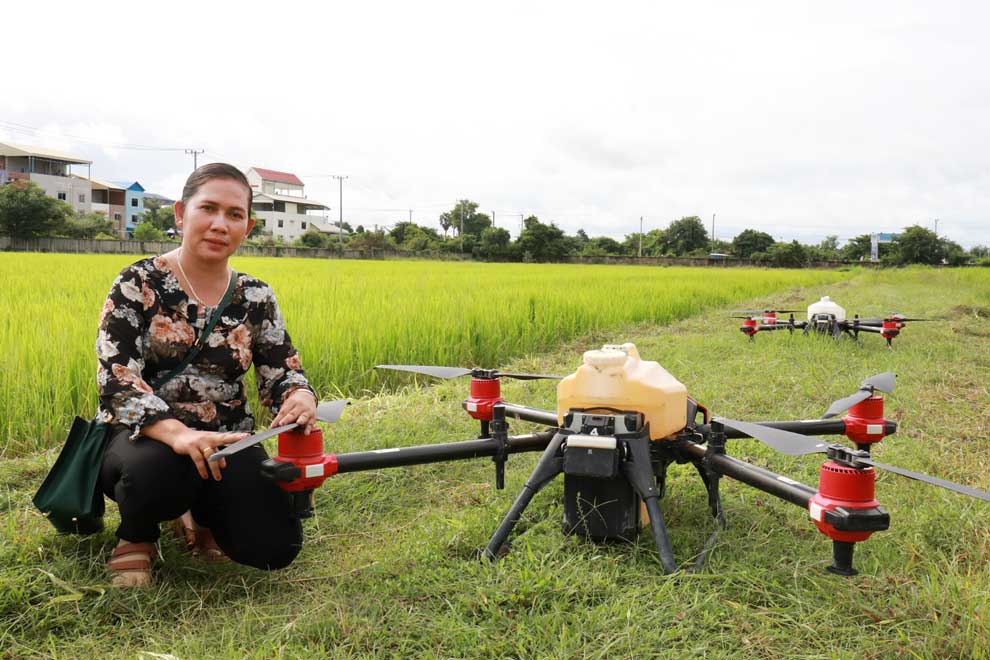
University of Queensland and CARDI train drone service providers in Prey Veng in early this month. AUSTRALIA EMBASSY
The Cambodian Agricultural Research and Development Institute (CARDI) has announced that it is collaborating with the University of Queensland in Australia to provide training for drone services providers in aerial fertilisation. The initiative aims to enhance the efficiency and safety of insecticide usage.
Lor Bunna, director of CARDI, stated on December 17 that technicians from the university had visited earlier in the month to conduct training on using drones for crop dusting. The institute is in the process of seeking legal permission to use drones for spraying insecticides and pesticides.
He highlighted that the training, which included drone service providers, agricultural officials and farmers from various provinces and districts, is designed to ensure effective and safe use of fertilisers, with economic benefits and time-saving advantages.
“We have observed a rise in drone usage for pesticide spraying from 2021 onwards. The training is part of a technical project on weed management for rice seeding machines in Cambodia and Laos, a collaboration between CARDI and the University of Queensland, spanning five years from 2021 to 2025,” Bunna explained.
Chea Sareth, head of the Socioeconomic Division at CARDI, who led one of the training teams, reported that over 60 individuals participated in the two-day training session held in early December. He said participants came primarily from Prey Veng and Takeo provinces.
He observed a significant increase in the number of drone providers, with one district boasting as many as six. Each provider typically owns two to three drones, though some have not obtained the necessary legal permissions for their use.
“The training is crucial for drone services providers, agricultural officials and farmers to consider the safety implications of using drones for spraying insecticides. We focus on teaching them to use drones effectively and understand the optimal flying heights for economic gains,” he stated.
Sareth added that, as CARDI currently lacks technicians skilled in drone operation, the training was particularly important for the service providers and farmers.























